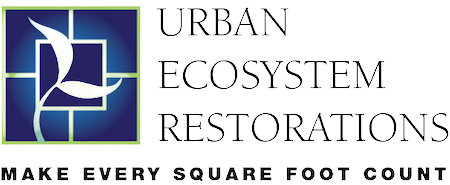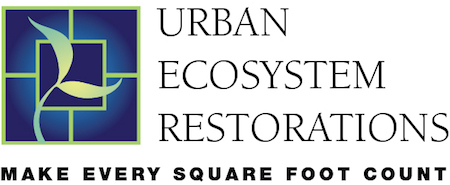By Rachel Toker, President & CEO of Urban Ecosystem Restorations
The words of former Congressman John Lewis have echoed in my ears since I read his final essay published in The New York Times on the day of his funeral, July 30, 2020:
In my life, I have done all I can to demonstrate that the way of peace, the way of love, and nonviolence is the more excellent way. Now it is your turn to let freedom ring….
So I say to you, walk with the wind, brothers, and sisters, and let the spirit of peace and the power of everlasting love be your guide.
This past September, we lost another titan of civil rights and one of my personal heroes, Ruth Bader Ginsburg. The deaths of these larger-than-life leaders followed a string of murders of African-American civilians at the hands of police officers around the country. And many of these took place amid the rising death toll of this year’s COVID-19 victims.
2020 has been a brutal year. A year full of much loss, pain, sadness, unrest, and fighting. It was not without happy moments, stories of resilience, and social progress. Yet, we have so much work to do. So much deep-seated conflict yet to be reckoned with and resolved. And we must do it without some of our most seasoned and inspirational leaders at the fore.
Now it is your turn. The power of everlasting love is your guide.
It’s our turn.
Where do we start? Approaching the “Other”
I believe we should start at the common core of the pain manifesting in the world: a persistent legacy of ignorance and dislike of “the Other,” accompanied by a need to dominate or destroy it.
Social psychologists have studied “in-group” and “out-group” relationships for years. In human development, identity formation is tied in part to our group identity – the groups we are part of. Normally, individuals value, favor, and conform to their own membership groups (in-groups) over groups to which they do not belong (out-groups). Negative approaches to out-groups (or what I call “the Other”) are common, though they are neither hard-wired in humans nor necessary for healthy group identity. Yet, when such negative approaches develop into the need for social dominance — an ideological preference for group-based dominance and inequality that can accompany in-group affinity, group relations become toxic. When present, a social dominance approach generally manifests itself in both human intergroup relations and human-animal relations (Amiot, 2019).[i]
In the U.S., a legacy of social domination plays out across the newsfeed in relationships among racial, socio-economic, and geographic regional communities, and in our relationship with non-human communities. It is not the only legacy in the rich history of this young country, but it seems to be the one in which we robe ourselves these days. Our recent federal election reveals that these profound divisions remain alive and well in the United States.
We have all watched this year (and for many years) as innocent lives of unarmed African-American people are snuffed out while engaging in normal daily activities. I, like many others, have felt so much rage, grief, and profound disappointment at these egregious violations of basic human rights and civil liberties. Yet, amid this rage, I hold John Lewis’s words in my mind.
John Lewis asks us to take up the legacy of everlasting love: a legacy that demands we approach the unknown with openness, respect, curiosity, and a willingness to learn new ways, see the best in others, and repair damage of the past.
Lewis’s call most certainly demands that we look very carefully at our individual and collective beliefs and daily decisions that arise specifically out of common myths about race in America. Yet, I believe his call requires us to examine more broadly our relationships with the human and non-human communities with whom we share this planet. Replacing a legacy of domination with a legacy of everlasting love requires us to consciously and intentionally imbue our approaches to the Other with love – across human intergroup relations and human/non-human group relations as well.
How are we doing?
Well, not so great. Whether we examine our treatment of human Others or the Others of our natural world, we can and should be taking a new approach.
When it comes to the treatment of Other human communities, we have built upon, rather than dismantling, legacies of institutional racism in urban spatial designs, as well as legacies within the environmental, conservation, and urban beautification movements that have marginalized and excluded racial minorities and the poor.
A quick look at the 2020 Living Planet Report of the World Wide Fund for Nature (formerly World Wildlife Fund) shows us how we, as human beings, continue to dominate, displace, and destroy plant and animal communities across the globe.

An examination of planetary measures of major Earth systems indicates that we are outside of a “safe operating space” (shown in green in the diagram) according to four out of the nine measures, with an inability to quantify at least two of the other measures. These are nine planetary systems – all of which are necessary preconditions for life on Earth as we know it. These assessments should cause us all profound concern: as these measures suggest that we are at high risk for destabilizing entire earth systems.[ii]
This series of 3 blogs will take a closer look at how the many millions of us who live, work, and play in urban communities can replace the legacy we are currently living with one that is a “more excellent way.” I will examine different perspectives on new pathways that are informed – implicitly or explicitly – by John Lewis’s message …pathways that no longer marginalize, but heal those communities we have injured, failed, disrespected, and even killed… whether due to our acts or omissions and whether in thought or deed.
I hope you will join me on this journey.

